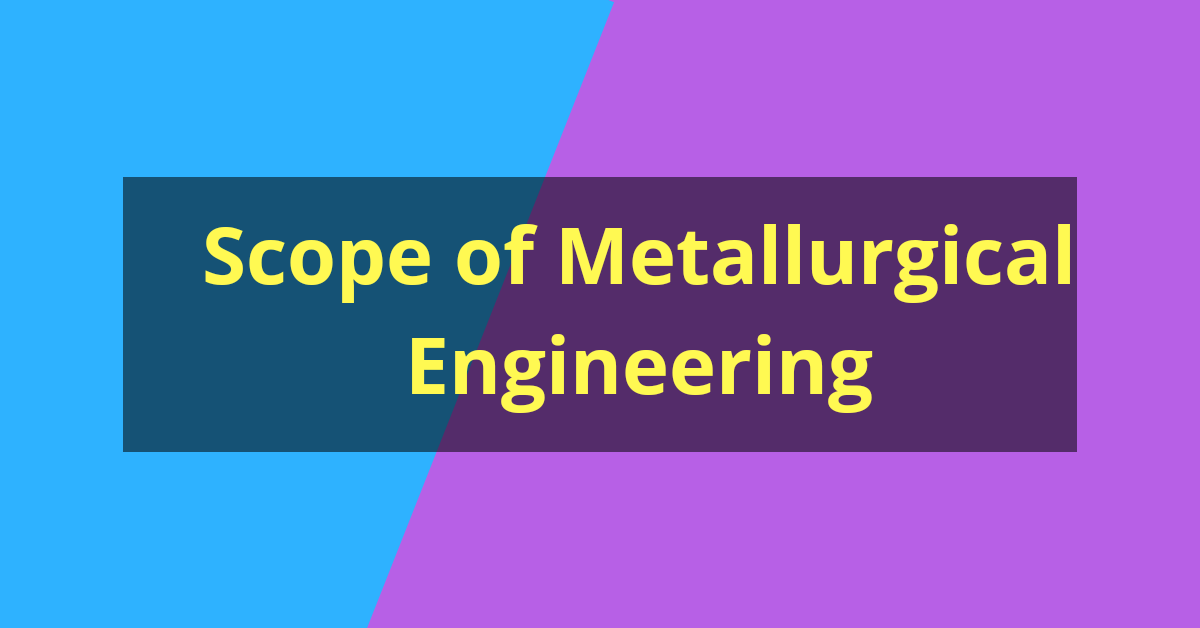Career in Metallurgical Engineering:
Basically, if we talk about metallurgical engineering, it is one of the eldest branches in the engineering field. The real time-space is usually occupied around us. All kinds of materials we call them as metallurgy. These are categorized in ferrous and nonferrous types.
Difference between ferrous and nonferrous materials
If we go to a detailed description of this field, we get to know what the difference between these ferrous and nonferrous objects is. Ferrous is one that contains iron in it, and nonferrous are the ones that do not contain iron in it.
A few examples of it are-
The Non-Ferrous Business includes
- Aluminum
- Copper and
- Its alloys, Zinc, Tin, Lead, Manganese.
- Rare metals (Chromium,Tungsten,Molybdenum,Vanadium,Selenium etc),
- Precious Metals (Gold, Silver, Platinum)
- Nuclear Grade materials( Uranium, Plutonium, Thorium, Zirconium Etc
- India makes several Non-Ferrous Metals and Alloys, but slightly fewer quantities in Precious and rare metals mainly due to lack of raw materials/minerals and has to import them.
- For example, India is the largest importer of Gold and barely makes any gold from minerals/ores.
Public Sector enterprises manufacture nuclear materials for apparent reasons.

Organizations/Companies exist both in Public and Private Sector of India are As follows-
- SAIL
- JSW
- Tata Steel
- NALCO
- Hindalco
- Vedanta
- Birla Copper
- MECON
- EIL
- L&T
- Jindal Stainless
- ISRO
- BARC
- Mishra Dhatu Nigam
- NFC
- National Metallurgical Labs
- Regional Research Labs
- Finolex and many more
Companies/Organizations that require metallurgical engineering skill & knowledge are:
- Operations/ Manufacturing
- Process Engineering & Control
- Safety, Health, and Environment
- Quality Assurance
- Research & Development
- Production Planning and Logistics
- Sales & Marketing
- Application Engineering & Customer Services
- Procurement
- Consultancy
- Equipment- Design, Manufacturing, and •Installation
- Projects -Planning, Engineering Execution
- Costing and Controlling
In addition to the above continuous process companies (CPC), several other companies require metallurgical engineering knowledge. These include:
- Thousands of Medium & Small Industries(MSI) that consume steel/metal/alloy or process it further
- (Cold Forming& Rolling, Wire drawing, Extrusion, Galvanising & Metallic coating, Forging, Casting, Machining, Fabrication & Welding, Heat Treatment and so on)
- Equipment Manufacturing Companies
- Consultancy, Design, Engineering, and Construction
- Material Testing Labs
- Research & Development-Public/Private/Academic
- Technology & Engineering Colleges, Universities
- Trade Association,
- Journals and Bodies representing MSI
- Metal Service centers
- Metals Trading
The increased consumption of metals due to economic growth also means that the consumer and service companies are also expanding, creating all-round employment due to the ripple effect.
In these industries/ businesses, additional qualification to an essential metallurgical Engg degree would be useful.
In such qualifications may include MS/M.tech/PhD/ M.B.A/Cost Accountancy. One can also go into a much broader but related field by acquiring an additional Master’s degree in Material Science, which is suitable for Metallurgy and Chemical engineers.
So, the overall topic of discussion is about the scope of metallurgical engineering, so no need to think much of it. If you have passion, go for it no need to think much about it. It is one of the oldest branches in engineering. A lot of companies work too in this field.
